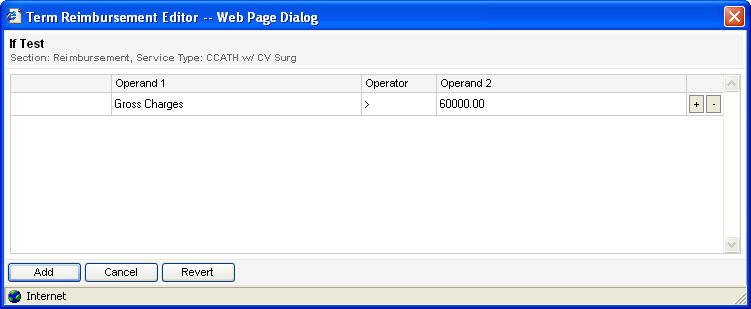The If Test tool qualifies a statement to determine how reimbursement is calculated. A statement can have two or more operands.

- The If Test tool is only used to set a condition or comparison for a following calculation–it does not calculate reimbursement.
- The first box in the first line will always be blank. This box is for an Operator but is only used in the second line and after.
- To type a number in an Operand box (instead of using the drop-down list), you must click your cursor in the box, and then press Enter. You may then type the number or text.
- Use a decimal to express a dollar amount, such as 60000.00. All dollar values must be entered using decimal format, including 0.00.
- You may define this tool to qualify more than one condition.
- You must define at least one other reimbursement tool in conjunction with this tool to specify how reimbursement is calculated for qualifying conditions.
- When the claim qualifies for the condition, the reimbursement is set to zero. The reimbursement calculated after the condition is met overrides any previously calculated reimbursement value.
- Common operands used in the If Test tool are:
- Days in Visit
- Days in Service Type
- Units in Service Type
The following table describes the fields on the If Test reimbursement tool.
|
Field |
Description |
|
Operand 1 |
First operand of the condition statement. You can select an operand or type a number |
|
Operand 2 |
Second operand of the condition statement. You can select an operand or type a number |
|
Operator |
Mathematical symbol or word that compares Operand 1 to Operand 2 |
